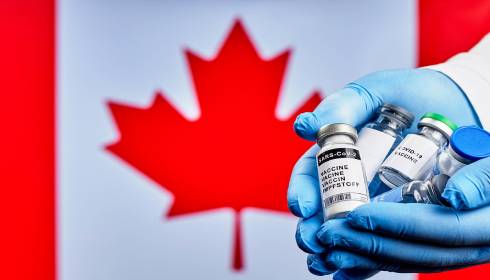
Omicron Variant: WHO flags variant as very high risk; many countries impose travel ban
In a report of the technical advisory group set up by the organisation to track the different variants that were updated on November 29, 2021, the WHO said that the new strain named Omicron has a high number of mutations including 26-32 mutations in the spike.
Many uncertainties like how transmissible the variant will be, whether any increases are related to immune escape, intrinsic increased transmissibility, how well vaccines protect against infection, transmission, clinical disease of different degrees of severity and death and variant present with a different severity profile still remain, the report released by the WHO said.
In view of the overall global risk related to the new Virus of Concern (VOC) Omicron is assessed as very high, the WHO has advised the governments of the countries to enhance surveillance and sequencing efforts along with community testing to detect if Omicron is circulating in the community in order to understand the variant better.
It has also urged the countries to accelerate COVID19 vaccination coverage as rapidly as possible, especially among populations designated as a high priority who remain unvaccinated or are not yet fully vaccinated.
Regarding international travel, the WHO advised the countries to use a risk‐based approach to adjust international travel measures in a timely manner.
“The use of masks, physical distancing and ventilation of indoor space, crowd avoidance, and hand hygiene remains the key to reducing transmission of SARS CoV‐2 even with the emergence of the Omicron variant,” the report stated.
“Contact tracing of COVID‐19 cases to interrupt chains of transmission of SARS‐CoV‐2 is strongly advised,” it added.
Allaying fears the report stated that the Omicron variant is detectable by the existing PCR diagnostics, though one of the widely used PCR tests namely, ThermoFisher TaqPath is unable to detect one of the three target genes.
“S gene dropout or S gene target failure, the test can therefore be used as a marker for this variant, pending sequencing confirmation,” the report added.
“Studies are underway to evaluate the transmissibility, severity and reinfection risk of Omicron. Additional studies are needed to understand the effectiveness of vaccination, by product, and by infection and disease outcomes. WHO will communicate new findings with the Member States and to the public as this information becomes available,” it added.
Meanwhile, 25 countries including the UK, US, EU members, Seychelles, Japan, Turkey, Singapore, Israel, India, Germany, the Netherlands, Canada, Australia Sri Lanka, Oman, Thailand, Brazil, Guatemala, the United Arab Emirates, the Philippines, Rwanda, Angola, Egypt and Mauritius have imposed a travel ban on passengers travelling from South Africa so far, reports suggest.
Tshwane metropolitan area of Pretoria, which remains the current hot-spot of the Omicron variant outbreak, is experiencing a sharp increase in the number of patients who have been hospitalised by the virus, with as much as 87% of these admissions were those who remained unvaccinated patients, a briefing by the South African health department on November 29, 2021, revealed.
The Indian authorities have put in place a stringent travel guideline for international travellers to be effective from December 1, 2021, in view of the emergence of the Omicron variant.
A notification released by the Ministry of Health and Family Welfare mandates all international travellers to submit a travel history of the past 14 days, a negative RT-PCR report on the Air Suvidha portal as well as an authenticity declaration for the COVID19 test report.